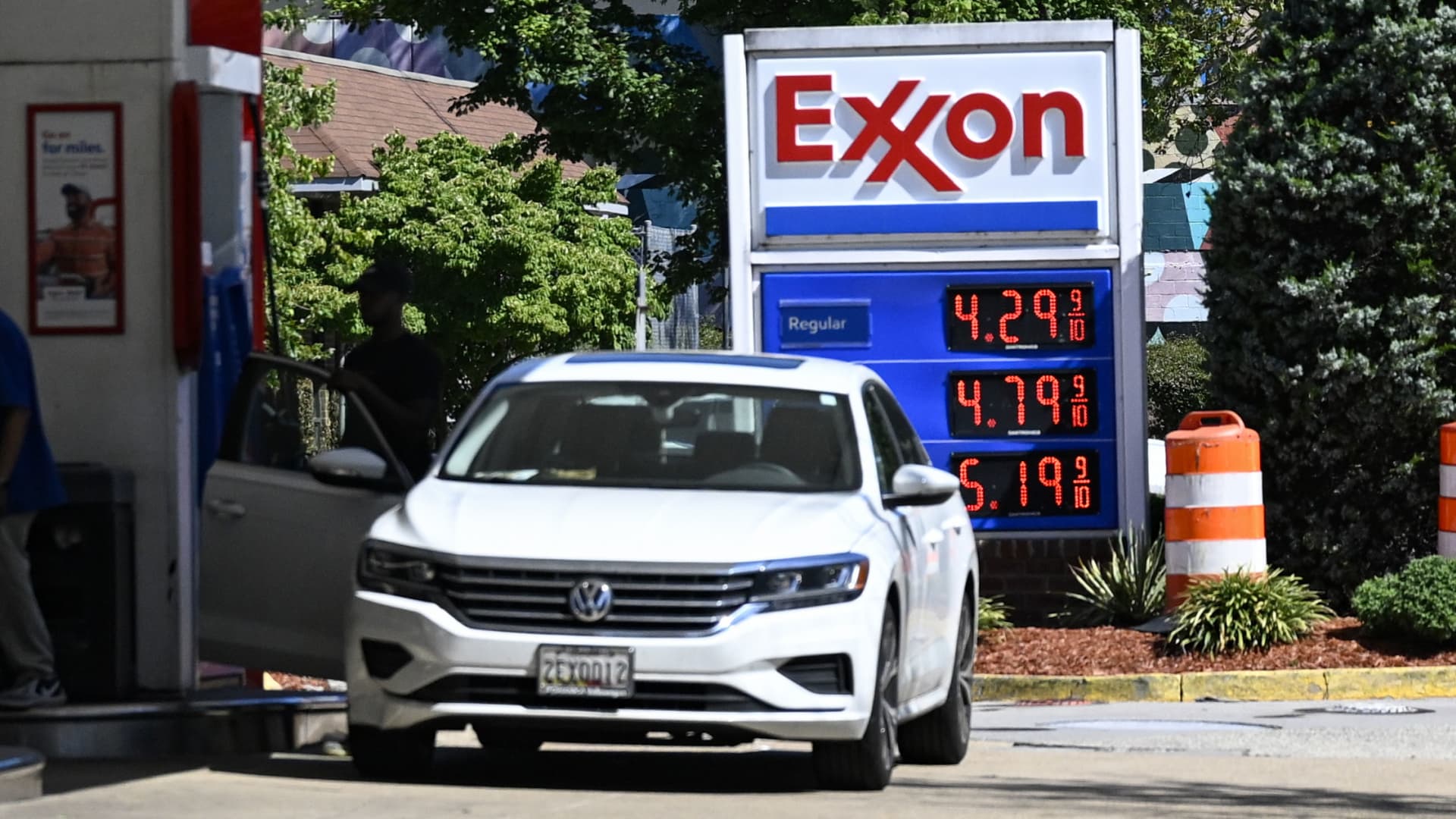This report is from today’s CNBC Daily Open, our new, international markets newsletter. CNBC Daily Open brings investors up to speed on everything they need to know, no matter where they are. Like what you see? You can subscribe here.
What you need to know today
Biggest monthly jump this year
The U.S. consumer price index for August rose 3.7% from a year ago and a seasonally adjusted 0.6% for the month, mostly in line with the expected 3.6% and 0.6%, respectively. Though expected, it’s still the biggest month-on-month increase in prices this year. Energy prices, which soared on the month, were mostly to blame. Core inflation, which excludes food and energy prices, was up 4.3% on the year and 0.3% on the month.
Markets shrugged
U.S. markets were mixed Wednesday, with the Dow Jones Industrial Average the only major index to fall. The pan-European Stoxx 600 fell 0.32% as European dealmaking sentiment remains cautious, according to a new report from law firm CMS and Mergermarket. Meanwhile, the U.K.’s economy shrank 0.5% month on month in July, more than the 0.2% expected.
An Arm and a leg
Arm is pricing its initial public offering at $51 per share, the top of its expected price range. That values the company at over $54 billion, giving it a price-to-earnings multiple of about 104. By comparison, Apple’s multiple is around 30, Tesla’s is 77 and Nvidia’s is 110 for the previous 12 months. Softbank, Arm’s current towner, will control about 90% of the company’s outstanding shares.
Rebuilding Citi
Citigroup CEO Jane Fraser reorganized the firm, dividing it into five main business lines that report directly to her. Previously, the bank had only two main divisions. The corporate shuffling will include job cuts, though the number is yet to be decided. Shares of Citigroup have declined about 40% since Fraser assumed the top job in March 2021, and trades for the lowest valuation among U.S. big banks.
[PRO] Joining the Tesla party
On Monday, Morgan Stanley published a note asserting Tesla could rally 60%. But that’s nothing compared to the call made by Ron Baron, the billionaire investor who founded Baron Capital in 1982. Baron thinks Tesla could grow to as much as five times its current stock market capitalization — here’s what he has to say about the electric vehicle manufacturer and Elon Musk’s other companies.
The bottom line
At first glance, August’s CPI report seems bad news. The month-over-month jump in prices is the highest in a year. And even core inflation came in hotter than expected. But look more closely and you’ll find things aren’t as terrifying as they seem.
The headline number was pushed up by rising oil prices, which have been steadily increasing in recent weeks, as we’ve talked about. Gasoline prices soared 10.6% in August, the largest contributor to inflation last month, according to the U.S. Bureau of Labor Statistics.
But it’s likely gasoline prices will fall after a month or two, according to Andrew Hunter, deputy chief U.S. economist at Capital Economics. And gasoline prices have actually retreated 3.3% from a year ago, suggesting that they’re still on a downward trend in the long run.
Excluding volatile energy prices, monthly core inflation was up 0.3% against the expected 0.2%. Here, shelter costs were the main culprit for the hotter-than-expected increase. “Housing continues to contribute an outsized share to the inflation measures,” said Lisa Sturtevant, chief economist at Bright MLS.
But, Sturtevant added, “rent growth has slowed considerably and median rents nationally fell year-over-year in August.” That slowdown in prices will show up in future reports, meaning that August’s core CPI numbers is just “a little bump in the road,” as Kayla Bruun, senior economist at Morning Consult, put it.
“It doesn’t mean it’s turning around and going in the other direction,” Bruun said. “Overall, most of the pieces are headed in the right direction.” Indeed, the annual measure of core CPI still dropped from 4.7% in July to 4.3% in August.
Markets took the numbers in their stride. The Dow was the only major index to fall, losing 0.2% as shares of 3M and Caterpillar sank. The S&P 500 added 0.12% and the Nasdaq Composite rose 0.29%, helped by gains in Tesla and Amazon. And traders are still betting the Federal Reserve won’t raise rates next week, according to the CME FedWatch Tool.
Markets can act in irrational ways sometimes. But sometimes, the crowd psychology of markets manifests as collective wisdom.
— CNBC’s Jeff Cox and Greg Iacurci contributed to this report

